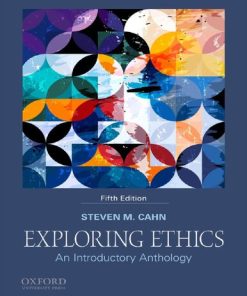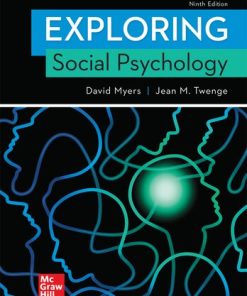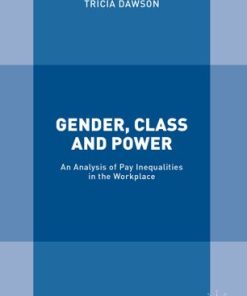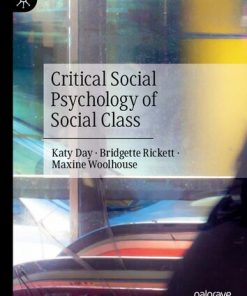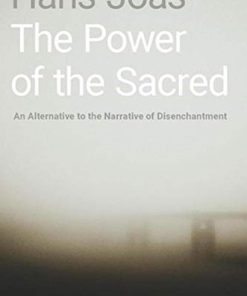Social Class and State Power: Exploring an Alternative Radical Tradition 1st Edition David M. Hart
$50.00 Original price was: $50.00.$25.00Current price is: $25.00.
Social Class and State Power: Exploring an Alternative Radical Tradition – Ebook Instant Download/Delivery ISBN(s): 9783319648934,9783319648941,3319648934,3319648942
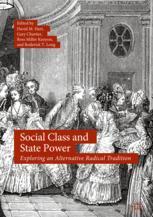
Product details:
- ISBN-10 : 3319648934
- ISBN-13 : 978-3319648934
- Author(s): David M. Hart,Gary Chartier,Ross Miller Kenyon,Roderick T. Long
This book explores the idea of social class in the liberal tradition. It collects classical and contemporary texts illustrating and examining the liberal origins of class analysis―often associated with Marxism but actually rooted in the work of liberal theorists. Liberal class analysis emphasizes the constitutive connection between state power and class position. Social Class and State Power documents the rich tradition of liberal class theory, its rediscovery in the twentieth century, and the possibilities it opens up for research in the new millenium.
Table contents:
1. Classic Works of Classical Liberal Class Analysis
1. Richard Overton, “Monopolists as Frogs and Vermin” (1641)
2. Adam Smith, “On Conspiracies, Monopolies, and Unproductive Labour” (1776)
3. Thomas Paine, The Rights of Man (1792)
4. Thomas Paine, Letter Addressed to the Addressers on the Late Proclamation (June 1792)
5. William Godwin, “Of Courts, Subjects, and Pensions” (1793)
6. Vicesimus Knox, The Spirit of Despotism (1795)
7. Jeremy Bentham, “Causes of All Mischiefs,” Plan of Parliamentary Reform (1817)
8. Jeremy Bentham, “How the Demand for Political Fallacies Is Created by the State of Interests,” The Book of Fallacies (1824)
9. Thomas Hodgskin, “On Obedience as the Object of Legislation” (1832)
10. William Leggett, “The Lordlings of the Paper Dynasty” (1834)
11. James Mill, “On Those Who Pillage and Those Who Are Pillaged” (1835)
12. John Wade, “The Aristocracy and the Oligarchy” (1835)
13. Adolphe Blanqui, “The Class Which Does Not Kill or Pillage” (1837)
14. Richard Cobden, “England Is a Perfect Paradise for the Aristocracy” (1845–49)
15. Frédéric Bastiat, “The English Oligarchy” (1845)
16. Frédéric Bastiat, “The Physiology of Plunder” (1847)
17. John C. Calhoun, “Tax Payers versus Tax Receivers” (1849)
18. Charles Renouard, “Robbers as Parasites” (1852)
19. Gustave de Molinari, “The Nobility as Conquering Plunderers” (1852)
20. Augustin Thierry, “The Emancipation of the Bourgeoisie” (1853)
21. Herbert Spencer, “The Class-Bias” (1873)
22. Herbert Spencer, “The Militant Type of Society” (1882)
23. Lysander Spooner, No Treason. No. VI. The Constitution of No Authority (1870)
24. Lysander Spooner, Natural Law Contrasted with Legislation (1882)
25. William Graham Sumner, “The Forgotten Man” (1883)
26. William Graham Sumner, “Democracy and Plutocracy” (Undated)
27. Benjamin R. Tucker, “The Four Monopolies: Money, Land, Tariffs, and Patents” (1888)
28. Franz Oppenheimer, “The Economic Versus the Political Means of Acquiring Wealth” (1908)
29. Albert J. Nock, Our Enemy, the State (1935)
30. Ludwig von Mises, “On Castes, Classes, and Group Interests” (1945)
2. Contemporary Interpretations of Classical Liberal Class Analysis
31. Murray N. Rothbard, “The Anatomy of the State” (1965)
32. Roy A. Childs, “Big Business and the Rise of American Statism” (1969, 1971)
33. Walter E. Grinder and John Hagel, “Toward a Theory of State Capitalism: Ultimate Decision-Making and Class Structure” (1974)
34. Hans-Hermann Hoppe, “Marxist and Austrian Class Analysis” (1990)
35. Roderick T. Long, “Toward a Libertarian Theory of Class” (1998)
People also search:
which social class has the most power and money
what is social class according to max weber
social class according to weber
social class and power
social class and power are examples of
social class and politics
social class and status
You may also like…
Business & Economics - Personal Finance
Aircraft Valuation: Airplane Investments as an Asset Class 1st Edition David Yu
Politics & Philosophy - Anthropology
Exploring Ethics An Introductory Anthology 5th Edition by Steven Cahn 0190887907 978-0190887902
Uncategorized
Engineering - Electrical & Electronic Engineering
Politics & Philosophy
Gender, Class and Power: An Analysis of Pay Inequalities in the Workplace 1st Edition Tricia Dawson
Relationships & Lifestyle - Psychological Self-Help
Computers - Enterprise Computing Systems
Computers - Artificial Intelligence (AI)
Exploring the Power of ChatGPT: Applications, Techniques, and Implications 1st Edition
Politics & Philosophy - Sociology
The Power of the Sacred: An Alternative to the Narrative of Disenchantment 1st Edition Hans Joas





